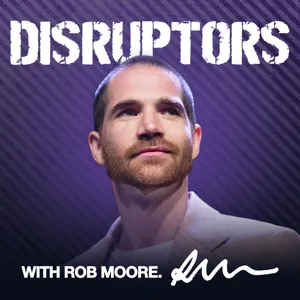Podcast Summary
Listen to the Think Fast, Talk Smart podcast for communication skills tips and industry insights: Maintain perspective, stay informed, and hone communication skills to navigate potential market volatility. A small warning from a semiconductor company could indicate broader sector weakness and impact the entire industry.
Effective communication skills are essential in business and life, and the Think Fast, Talk Smart podcast, with its expert guests and practical tips, can help hone those skills. In the financial world, it's important to keep an eye on key indicators, like Microchip Technology's warning of lower Q3 sales. This small semiconductor company, which books results on a sell-through basis, can signal weakness on the customer end and potentially impact the entire sector. While the revenue guidance adjustment was relatively small, it may lead to a slowdown in chip sales and could take a few quarters to turn around. Despite the potential volatility in the market, it's crucial to maintain perspective and stay informed.
Semiconductor Industry's Volatility Leads to Quick Decisions: Investors make quick decisions based on industry volatility and conflicting opinions on stock valuations, highlighting the importance of staying informed and making thoughtful investment decisions.
The semiconductor industry is known for its volatility and cyclical nature, leading to quick decisions from traders. This was evident when a relatively small company's CEO expressed concerns about a potential down cycle, causing some investors to sell their Intel stocks for fear of missing out on better opportunities. Meanwhile, billionaire activist investor Carl Icahn urged Apple to buy back more shares, arguing that the company's stock was undervalued and could double in price based on his earnings estimates and valuation assumptions. However, some experts believe Icahn's analysis is oversimplified and self-serving, and that Apple's current stock price already reflects its strong performance and growth potential. Ultimately, the semiconductor industry's volatility and the differing opinions on stock valuations highlight the importance of staying informed and making thoughtful investment decisions.
Apple's EPS may include share buyback impact, SodaStream's Q3 disappoints, HP to split, buyout potential for SodaStream: Apple's earnings could be influenced by share buybacks, SodaStream faces a tough holiday season, HP's split has uncertain long-term benefits, potential buyout for SodaStream
Apple's earnings per share estimate for next year may or may not include a reduction in share count following their recent buyback. Meanwhile, SodaStream's disappointing third quarter revenue and significant reduction in top line guidance suggest a challenging holiday season ahead. The best option for the struggling company may be a buyout by private equity or another larger company. Hewlett Packard's announcement to split into two separate businesses resulted in initial gains, but the long-term logic and potential success of the move remain unclear.
HPE and HP Inc. Split: Focus, Faster Response, and Closer Rewards: The HPE and HP Inc. split will bring strategic advantages, but also risks and uncertainties. Costco continues to thrive with strong profits, growth, and membership retention rates, making it a retail standout.
The Hewlett Packard Enterprise (HPE) and HP Inc. split will bring strategic advantages such as focus, faster response to customers, and closer rewards to results for employees. However, there are risks and uncertainties, including potential customer confusion and uncertainty during the transition period. Meanwhile, Costco's Q4 results showed strong profits, growth, and membership retention rates, making it a well-run company with an incredibly strong business model. The company continues to manage its growth well, both domestically and internationally, and its membership fees contribute the majority of its operating profits. Despite being known for hotdogs and sodas, Costco's strong execution and growth strategies make it a retail standout.
The Container Store's Q2 performance disappoints, shares suffer: Investors should exercise caution with The Container Store due to uncertain long-term prospects, tough competition, and a high valuation despite weak market conditions
The Container Store's 2nd quarter financial performance fell short of expectations, with a decrease in same store sales and negative sales guidance. Shares of the company have suffered as a result, trading at a high valuation despite challenging comps and debt levels. The company's long-term prospects are uncertain due to a tough consumer environment and increasing competition, even from retailers like Ikea, Target, and Home Depot. Investors should approach this opportunity with caution, as the company's high valuation may not be justified given the current market conditions and competition. Additionally, The Container Store's potential elimination of sales guidance could impact investor sentiment. While the company's focus on customer service differentiates it from competitors, the shift towards digital storage solutions may pose a long-term threat.
Applying Neuroscience to Organization and Productivity: Incorporating neuroscience into our organizational strategies can enhance focus, productivity, and mental clarity. Companies like The Container Store offer solutions, while investing opportunities exist in firms like Horsehead Holding, PepsiCo, and Wayfair.
Understanding neuroscience can help us get better organized by providing scientifically-backed principles to improve our focus, productivity, and overall mental clarity. The discussion highlighted the unique offerings of a container solutions company, The Container Store, and suggested investing opportunities in companies like Horsehead Holding (Zinc) due to temporary setbacks. Jeff Fisher shared his interest in PepsiCo (PEP) based on their recent good results, while Jason Moser expressed intrigue in Wayfair (W), an e-commerce play in the home furnishings market. Dan Levitan, a professor of psychology and neuroscience, emphasized the importance of basing organizational strategies on scientific principles as outlined in his book "The Organized Mind." By incorporating neuroscience into our approach to organization, we can make the most of our cognitive abilities and effectively navigate the age of information overload.
Decision fatigue and limited cognitive resources: Making too many decisions or multitasking can negatively impact focus and lead to poor judgment. Important decisions should be made early in the day and one task should be focused on at a time to optimize cognitive resources.
Our brains have limited capacity for attention and memory, and making too many trivial decisions or multitasking can negatively impact our ability to focus on important tasks. New research in cognitive neuroscience shows that decision fatigue is a real phenomenon, and every decision we make uses up mental energy. This can lead to poor judgment and impulse control when making important decisions, such as financial investments. Additionally, memory is more limited than previously thought, and we can only consciously deal with a certain number of things at once. Multitasking, which seems like it would increase productivity, actually decreases it, as our brains can't effectively focus on multiple tasks at the same time. Despite this, people continue to multitask due to the illusion that they are being more productive. To make the most of our cognitive resources, it's recommended to make important decisions early in the day and focus on one task at a time.
Neuroscience of Productivity: Why Simple Solutions Work: Neuroscientist Dan Levitin suggests using a paper to-do list and taking regular breaks to improve productivity and organization. Writing things down by hand and taking breaks help with memory and creativity, while the physiological addiction to dopamine leads to productivity traps.
Our brains are prone to self-delusion and productivity traps, such as constantly adding tasks to our to-do lists and feeling the need to be constantly productive. Neuroscientist Dan Levitin, author of "The Organized Mind," explains that every time we complete a task or pay attention to something new, we get a dopamine hit, leading to a physiological addiction loop. However, he suggests simple, low-tech solutions to improve productivity and organization, such as using a paper to-do list and taking regular breaks. Writing things down by hand requires deeper processing and helps with memory, while taking breaks allows the brain to reset and refocus, leading to increased creativity and higher quality work.
Take a 15-minute nap for an IQ boost, but disconnect to be present: Napping can increase IQ, but staying connected to work hinders presence; create a separate email account and set aside specific times to check emails for improved efficiency and productivity
Taking a 15-minute nap in the afternoon can lead to an IQ increase of 10 points. However, with our increasingly connected world, it can be challenging to fully disengage from work, leading to decreased productivity and presence in both personal and professional spheres. To combat this, consider adopting strategies such as creating a separate email account for urgent messages and setting aside specific times to check and respond to emails. By implementing these simple changes, we can improve our efficiency and productivity, allowing us to effectively close the door on work at the end of the day and be fully present in our personal lives.
The Brain's Balancing Act: Predictability vs. Surprise: Our brains seek a balance between predictability and surprise for optimal happiness and productivity. This balance is particularly important in the workplace and education.
Our brains are wired to seek a balance between predictability and surprise for optimal happiness and productivity. Daniel Levitan, a neuroscientist and bestselling author, discusses the role of Area 47, a part of the brain that helps us predict what's next, and its influence on dopamine levels. This area is particularly active when we're listening to music, reading a novel, or watching a film, as it seeks to find the right balance of familiarity and surprise. In the workplace, this translates to workers being happiest when their jobs offer some predictability but also allow for structured surprises and opportunities to exercise initiative. As for students, while different systems work for different people, it's important to have a transparent system when sharing work with others. Levitan, who is also an accomplished musician, emphasizes the importance of finding this balance in various aspects of life, including music and work.
Dan Levitin recommends 'The Organized Mind' for managing information overload and shares new music releases: Dan Levitin, a neuroscientist and musician, suggests reading 'The Organized Mind' for managing info overload and enjoys new music releases from Clare and the Reasons, Phil Claypool, and Rodney Crowell.
Dan Levitin, a neuroscientist and musician, recommends checking out the latest New York Times bestseller from Dan Levitin, "The Organized Mind," for help in managing information overload. He also shared his love for various new music releases, including Clare and the Reasons, Phil Claypool's "The Strong One," and Rodney Crowell's recent albums. Dan's experience as a neuroscientist and musician led him to recommend these resources for personal growth and enjoyment. Additionally, The Motley Fool aims to help people invest better through their radio show and investing services like Motley Fool Stock Advisor.







